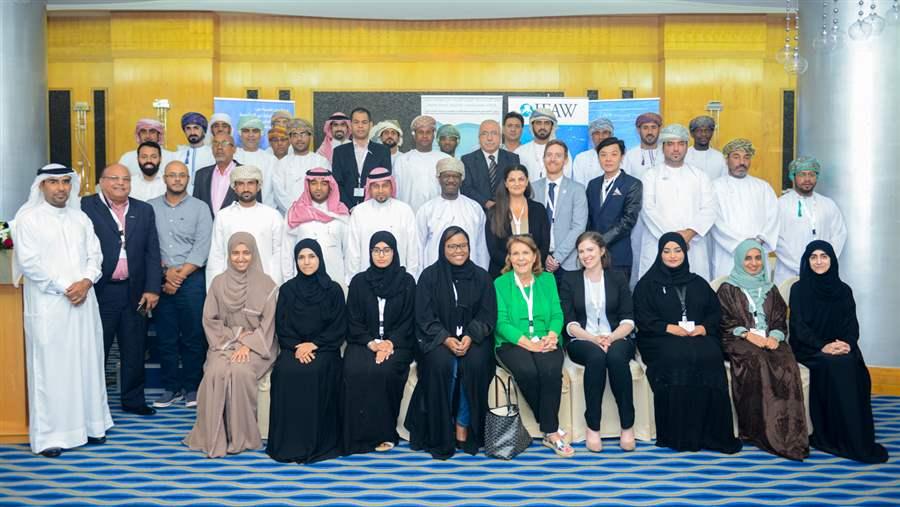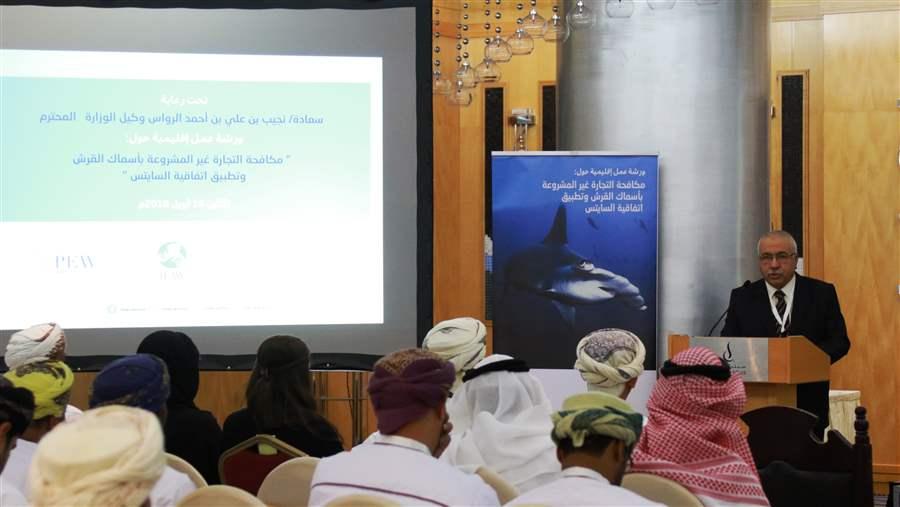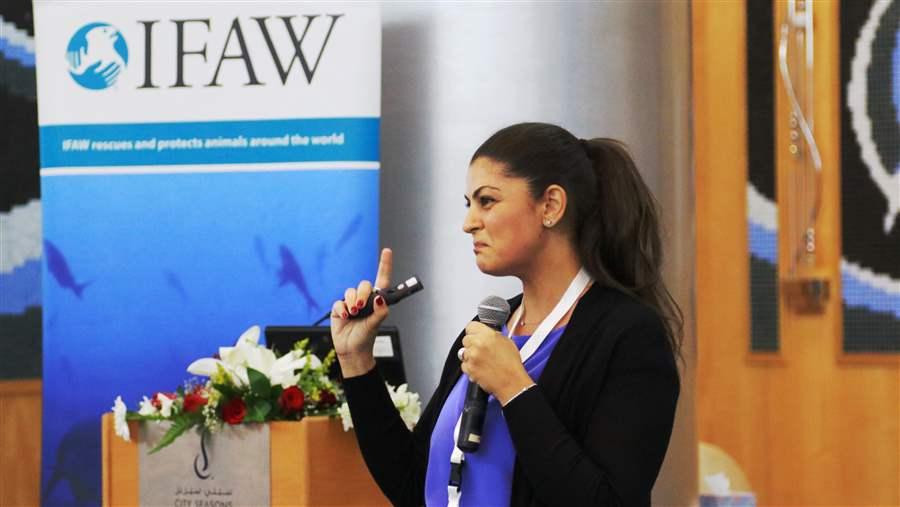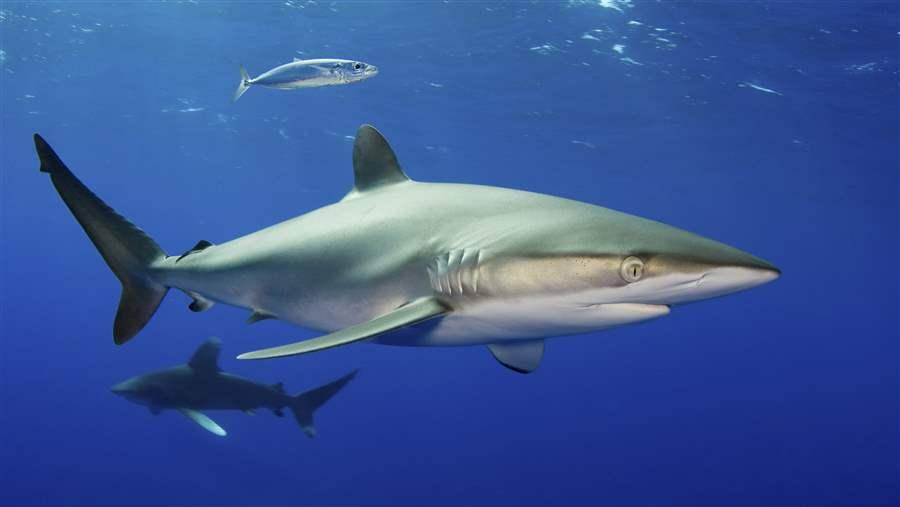Middle East Countries Gather to Prevent Illegal Trade of Sharks
Regional workshop focuses on helping governments protect species through CITES implementation
Eighteen kilometers (almost 11 miles) off the coast of Oman, the Dimaniyat islands are fast becoming a popular dive destination for wildlife enthusiasts—specifically those seeking up-close encounters with whale sharks, which migrate through the area from September through November. Recognizing the value of that tourism to the country’s economy, the Omani government, along with many others in the region, is making a priority of safeguarding shark populations within their waters.

Representatives met in Oman to learn best practices in implementing the CITES shark listings.
Akram DarwichFrom April 16 to 18, the government of Oman, in collaboration with The Pew Charitable Trusts and the International Fund for Animal Welfare (IFAW), hosted a workshop in Muscat to help countries in the region implement shark-related trade measures adopted under the Convention on International Trade in Endangered Species of Wild Fauna and Flora (CITES).
CITES helps protect 20 commercially valuable shark and ray species through listing on the convention’s Appendix II, which stipulates that international trade must be sustainable and legal, and not detrimental to populations in the wild. Those species are: oceanic whitetip sharks; porbeagle sharks; silky sharks; scalloped, smooth, and great hammerhead sharks; bigeye, common, and pelagic thresher sharks; and all manta and mobula rays.
Eng Sulaiman al Akhzami, director general of nature conservation at Oman’s Ministry of Environment and Climate Affairs, opened the workshop, which drew participants from Oman, Egypt, United Arab Emirates, Kuwait, Somalia, Saudi Arabia, and Bahrain to discuss how to overcome challenges in implementing shark CITES listings and next steps to improve management and coordination regionwide.

Akram Darwich, technical adviser of the International Fund for Animal Welfare, explains how countries can comply with CITES requirements for listed shark and ray species.
Stan SheaStudies show that 47 species of sharks are present within Omani waters, with the highest diversity found in the Muscat area, making the workshop location particularly appropriate. This event laid the foundation for governments to properly regulate their shark fisheries and contribute to international shark management—a critical issue given that at least 63 million and as many as 273 million are killed every year in commercial fisheries worldwide.
Event participants received tools for implementing CITES shark listings, including shark fin identification guides. These guides, which help wildlife inspectors, customs agents, and fisheries personnel provisionally identify CITES-listed species by their fins, have been condensed into quick-reference posters for officials working at landing docks and ports.

Rima Jabado trains workshop attendees on shark fin identification for CITES-listed species.
Stan SheaThe government representatives also discussed what they’ve done domestically to protect and manage these species, and what they hoped to accomplish to prevent further declines. Other topics included how to improve fisheries data collection and promote regional cooperation, for example through a regional non-detriment finding, which could produce an assessment to determine appropriate levels of sustainable trade. By adopting and enforcing national regulations that restrict the international trade of CITES-listed sharks, governments can help combat the severe population depletion of some of the world’s most vulnerable species.
Through workshops such as these governments around the world are showing that they take the proper implementation of CITES shark listings seriously, continuing to make conservation of this ecologically and economically valuable species a priority.
Jen Sawada directs The Pew Charitable Trusts’ global shark conservation program.













